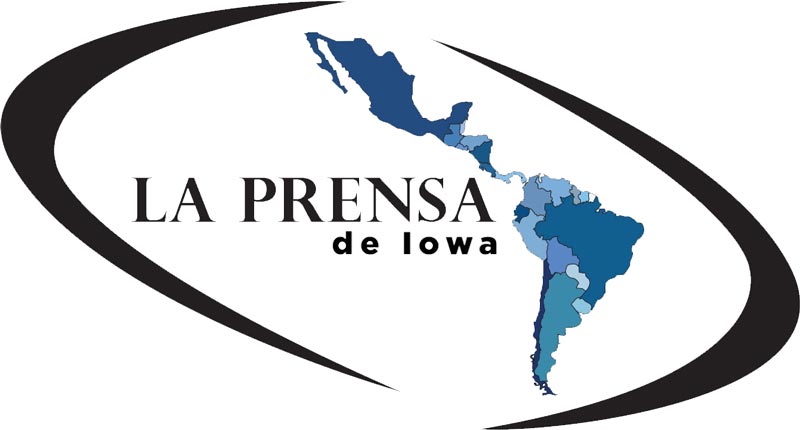El Papa Francisco y la unión civil de homosexuales
/Redacción
LA PRENSA
Fueron declaraciones inéditas. Este miércoles, se conoció que el papa Francisco había expresado su apoyo a la legalización de la unión civil entre personas del mismo sexo.
"La gente homosexual tiene derecho a estar en una familia. Son hijos de Dios y tienen derecho a una familia. Nadie debería ser expulsado o sentirse miserable por ello", dice el líder de la Iglesia católica en un documental llamado "Francesco".
"Lo que tenemos que crear es una ley de unión civil. De esa manera están cubiertos legalmente. Yo defendí eso", agregó, aparentemente refiriéndose a su época de arzobispo de Buenos Aires, cuando Argentina debatió la legalización del matrimonio igualitario.
Las declaraciones tuvieron una fuerte repercusión, con palabras de apoyo a lo dicho por Francisco y algunas voces contrarias.
Sin embargo, lo que quedó flotando en el ambiente es qué tanto efecto tiene estas palabras en relación con la posición oficial de la Iglesia católica en la materia.
"Lo que dijo Francisco es sin duda algo nuevo dentro de la Iglesia. Sin embargo, es un tema en el que ha venido insistiendo en los últimos años", le dijo a BBC Mundo Massimo Faggioli, teólogo y autor del libro Pope Francis: Tradition in Transition.
Ahora ese cambio tiene que estar en los textos oficiales, sobre todo en el Catecismo", señaló Faggioli, en relación a los textos que resumen y exponen la doctrina católica y son la base de la enseñanza religiosa.
El Catecismo de la Iglesia católica, que había sido escrito de manera separada durante siglos, fue publicado en su totalidad en 1997 por Juan Pablo II y corregido por Benedicto XVI en 2005.
Ahora, estos textos pueden ser modificados por el Papa a través de la Congregación de la Doctrina de la Fe.
Por ejemplo, la modificación más reciente fue hecha por el propio Francisco en 2018 para declarar "inadmisible" la pena de muerte e incluir un compromiso a luchar contra ella en todo el mundo.
"El Catecismo es el documento donde se consignan los principales puntos de doctrina, modificarla para incluir este pensamiento es donde debe ocurrir el verdadero cambio. Pero no se sabe cuándo y cómo va a ocurrir", señala.
Cambio cultural
Para muchos especialistas, las palabras de Francisco conocidas esta semana tienden a reflejar una posición más abierta e inclusiva que ya han adoptado muchos episcopados alrededor del mundo a lo largo de los años, pero dejando claro que se apoya la unión civil más no el matrimonio.
"El asunto que dice el Papa de las uniones civiles es la postura, si no dogmática y oficial de la Iglesia, sí la postura general de los episcopados: se entiende que haya algunas regulaciones de la convivencia entre personas homosexuales, pero no se considera que es matrimonio", explicó en declaraciones a Europa Press el profesor de Teología Dogmática en la Universidad Pontifica de Salamanca Emilio José Justo Domínguez.
Muchos analistas coinciden en que las palabras de Francisco hacen hincapié en que no se trata de permitir el matrimonio entre las personas del mismo sexo.
"En ese sentido, no se cambia la postura de la Iglesia", señala Faggioli.
Pero anota que la importancia de que esta actitud se traslade a textos oficiales y legales no se reduce a la unión civil.
"Esto va más allá. Va sobre la postura de los colegios católicos para que no rechacen a parejas del mismo sexo. Para que no haya discriminación a la adopción de niños, de las cuales muchas agencias son manejadas por instituciones católicas. Repercute en muchas cosas", explica el teólogo.
Un ejemplo de estos textos sería una carta apostólica o una encíclica, donde puede tratar estos temas de manera oficial.
Estos documentos son la forma que tiene el sumo pontífice de dirigirse a sus obispos, sacerdotes y fieles para hablar sobre temas de doctrina.
Un ejemplo de ello fue la última encíclica publicada por Francisco en octubre de este año, llamada "Fratelli tutti", en la que habla de la fraternidad cristiana tomando como contexto la pandemia del coronavirus.
El teólogo anota que Francisco sabe que modificar el Catecismo o escribir una encíclica no es tan difícil como cambiar la cultura dentro de la Iglesia católica.
"Eso lo sabe el Papa y por eso ha dado este mensaje. Como lo veo, es una estrategia que está utilizando para un cambio de cultura al largo plazo dentro de la iglesia frente a este tema", anota Faggioli.
Y ese mensaje ha sido bien recibido, aunque sin tanta euforia.
"El Papa ha dicho que las personas LGBT necesitan reconocimiento legal. Es tarde, pero al menos sucedió. Creo que ayudará a nuestra lucha (...) Espero que este sea un nuevo capítulo que está comenzando", dijo el activista polcao Bartosz Staszewski.
Los conservadores
A diferencia de sus predecesores, Francisco ha elegido mostrar cierta empatía por la comunidad LGBTQI+ desde que ocupó el trono de San Pedro en 2013, algo que le ha valido críticas de los jerarcas conservadores del Vaticano.
Y también señalamientos por lo que muchos, entre los sectores más progresistas, consideran es "hipocresía": hacer declaraciones pero no introducir modificaciones reales en la misma línea.
Durante su papado, Francisco se ha enfrentado a grupos conservadores no solo frente al tema de los derechos de los homosexuales, sino también respecto a la administración del sacramento de la comunión a personas divorciadas o la aceptación de sacerdotes casados.
"Creo que en cuanto a la unión civil de personas del mismo sexo ha sido claro. Y con algunos sectores esto ha creado varias tensiones, sin duda", señala Faggioli.
Los desafíos por modernizar una institución milenaria son muchos y, según el autor, la principal reforma que debe hacerse dentro de la Iglesia católica tiene que ver con el papel de la mujer dentro de la institución.
"Y no hablo sobre sacerdotisas mujeres, sino de la presencia de mujeres dentro de las principales organizaciones e instituciones católicas. Es un tema transversal que va desde Europa a América, África y Asia", anota.
Y a diferencia de la apertura relativa y el apoyo a la unión civil homosexual, el papa Francisco no dado ninguna señal de que quiera hacer una reforma en este sentido.
"No ha sido abierto a este tema, como sí lo ha sido con otros. La Iglesia Católica necesita una transformación, pero no puede hacerse en un solo sentido", señala.
Google Translation
Pope Francis and the civil union of homosexuals
Editorial
LA PRENSA
They were unpublished statements. This Wednesday, it was known that Pope Francis had expressed his support for the legalization of the civil union between people of the same sex.
"Homosexual people have the right to be in a family. They are children of God and they have the right to a family. No one should be expelled or feel miserable about it," says the leader of the Catholic Church in a documentary called "Francesco."
"What we have to create is a civil union law. That way they are legally covered. I defended that," he added, apparently referring to his time as archbishop of Buenos Aires, when Argentina debated the legalization of equal marriage.
The statements had a strong impact, with words of support for what Francisco said and some contrary voices.
However, what remained floating in the air is how much effect these words have in relation to the official position of the Catholic Church on the matter.
"What Francis said is undoubtedly something new within the Church. However, it is a topic that he has been insisting on in recent years," Massimo Faggioli, theologian and author of the book Pope Francis: Tradition, told BBC Mundo. in Transition.
Now that change has to be in the official texts, especially in the Catechism, "said Faggioli, in relation to the texts that summarize and expose Catholic doctrine and are the basis of religious teaching.
The Catechism of the Catholic Church, which had been written separately for centuries, was published in its entirety in 1997 by John Paul II and corrected by Benedict XVI in 2005.
Now, these texts can be modified by the Pope through the Congregation for the Doctrine of the Faith.
For example, the most recent amendment was made by Francis himself in 2018 to declare the death penalty "inadmissible" and include a commitment to fight it around the world.
"The Catechism is the document where the main points of doctrine are consigned, modifying it to include this thought is where the real change must occur. But it is not known when and how it will happen," he says.
Cultural change
For many specialists, the words of Francis known this week tend to reflect a more open and inclusive position that many episcopates around the world have already adopted over the years, but making it clear that civil union is supported, not marriage.
"The issue that the Pope says about civil unions is the position, if not dogmatic and official of the Church, but the general position of the episcopates: it is understood that there are some regulations on coexistence between homosexual people, but it is not considered that It's marriage, "Emilio José Justo Domínguez, professor of Dogmatic Theology at the Pontifical University of Salamanca, explained in statements to Europa Press.
Many analysts agree that Francisco's words emphasize that it is not about allowing same-sex marriage.
"In this sense, the position of the Church is not changed," says Faggioli.
But he notes that the importance of this attitude being transferred to official and legal texts is not limited to the civil union.
"This goes further. It is about the position of Catholic schools so that they do not reject same-sex couples. So that there is no discrimination in the adoption of children, of which many agencies are managed by Catholic institutions. It affects many things. ", explains the theologian.
An example of these texts would be an apostolic letter or encyclical, where you can deal with these issues in an official way.
These documents are the Supreme Pontiff's way of addressing his bishops, priests and faithful to speak on doctrinal issues.
An example of this was the last encyclical published by Francisco in October this year, called "Fratelli tutti", in which he speaks of Christian fraternity taking the coronavirus pandemic as a context.
The theologian notes that Francis knows that modifying the Catechism or writing an encyclical is not as difficult as changing the culture within the Catholic Church.
"The Pope knows that and that is why he has given this message. As I see it, it is a strategy that he is using for a long-term change of culture within the church on this issue," says Faggioli.
And that message has been well received, although without much euphoria.
"The Pope has said that LGBT people need legal recognition. It is late, but at least it happened. I think it will help our fight ... I hope this is a new chapter that is beginning," said Polish activist Bartosz Staszewski.
The Conservatives
Unlike his predecessors, Francis has chosen to show some empathy for the LGBTQI + community since he took the throne of Saint Peter in 2013, something that has earned him criticism from conservative leaders in the Vatican.
And also accusations for what many, among the most progressive sectors, consider is "hypocrisy": to make statements but not to introduce real modifications in the same line.
During his papacy, Francis has faced conservative groups not only on the issue of gay rights, but also regarding the administration of the sacrament of communion to divorced people or the acceptance of married priests.
"I think that regarding the civil union of people of the same sex it has been clear. And with some sectors this has created several tensions, without a doubt," says Faggioli.
The challenges of modernizing a millenary institution are many and, according to the author, the main reform that must be made within the Catholic Church has to do with the role of women within the institution.
"And I am not talking about women priestesses, but about the presence of women within the main Catholic organizations and institutions. It is a cross-cutting theme that goes from Europe to America, Africa and Asia," he notes.
And unlike the relative openness and support for the homosexual civil union, Pope Francis did not give any sign that he wants to make a reform in this regard.
"It has not been open to this issue, as it has been with others. The Catholic Church needs a transformation, but it cannot be done in only one sense," he says.







































